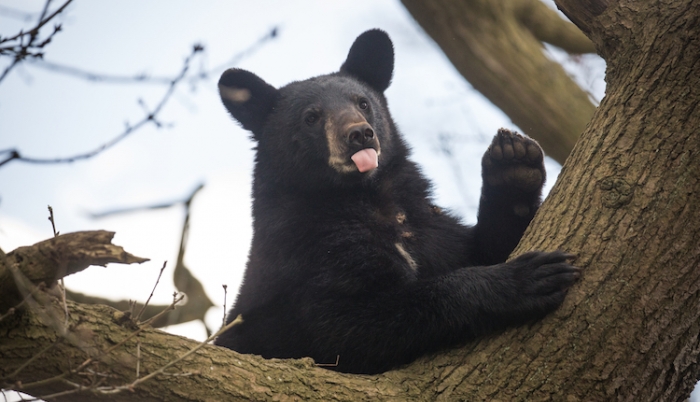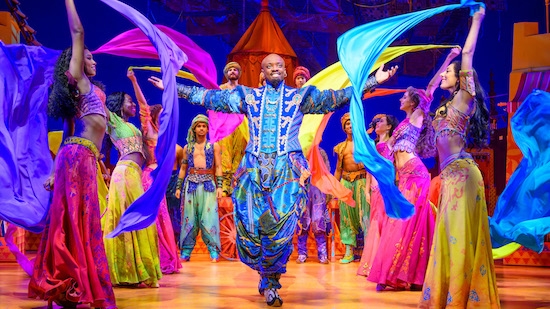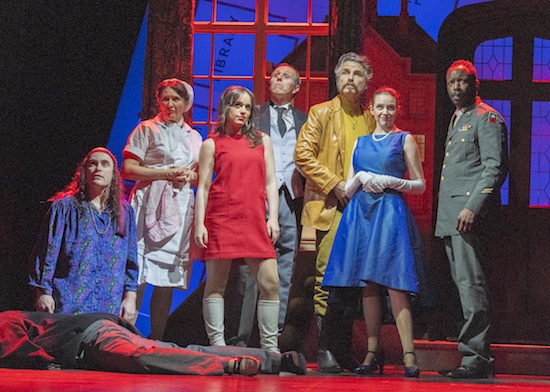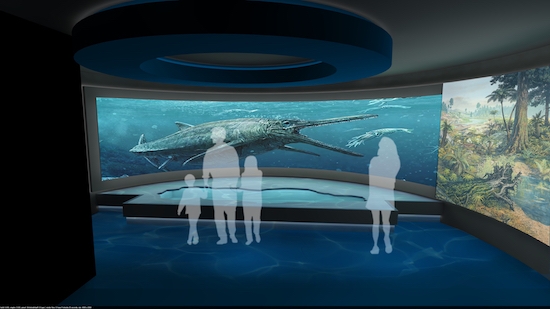Three North American black bear cubs are busy causing mischief in their spacious new 13-acre home, in the Kingdom of the Carnivores drive-through enclosure at Woburn Safari Park.
Cheeky cubs, Alabama, Kaska and Sekani enjoyed their first birthdays this month, and shortly afterwards left their half-acre pen with four year-old mum, Phoenix, and ventured out into the main 13-acre reserve on the Road Safari for the first time.
Having just recently emerged from their winter hibernation, keepers decided the North American black bear cubs were ready for their big move into a larger parkland enclosure.
Woburn is the only place in the UK where the public can see this bear species, and the three one-year-old cubs are the first to be born at Woburn in the past 18 years.
 Woburn Safari Park -65 (1) copy.jpg)
The cubs’ first day out in the reserve was a success, with Kaska in particular showing her adventurous side by immediately climbing several trees. Sekani was initially less confident about moving, but is now happily exploring the reserve and meeting the adult bears with her siblings, under the protective eye of mother, Phoenix.
Lucky visitors to the Park can now see the trio napping, climbing, playing, and sometimes even doing a few forward rolls, as they settle into their new home and get acquainted with the six other adult bears and three Canadian Timber wolves.
"Keepers are expecting to see the cubs’ playful antics wreak a little havoc on their new habitat, as cubs can often be quite destructive when it comes to plants and trees.
 Woburn Safari Park -81 (1) copy.jpg)
The young bears had previously been living inside a ground-level den in an enclosed half-acre pen, so they could sleep, grow and bond with their mum. Keepers moved the cubs to the side pen days after the cubs appeared at Easter in 2016, to allow them time to develop away from the rest of the wolves and bears resident in the enclosure.
Ben Davies, Senior Keeper at Woburn Safari Park said:
“Now that the cubs are becoming more active and independent, it is the right time to let them enter and explore the main reserve.
"The public love to see the bears and the species is really popular with visitors driving though the Road Safari route. Our bears live wild and enjoy a beautiful parkland environment, which is very close to their own natural habitat.
"It will be fun to see what these cubs make of their new larger home and to see them interact with the adult bears.”
 Woburn Safari Park -30 (1) copy.jpg)
“We still expect them to stay relatively close to their mum, Phoenix, over the next few weeks as they find their feet and work out their place in the natural hierarchy. As in the wild, this will be a trial and error process and they will have to learn pretty quickly not to muscle in on their dad, Xanthos’ food!”
The cubs were initially thought to all be female; however keepers now suspect that two could be male as they have grown noticeably larger than the third. The bears are given a special diet, suited to their omnivorous nature; with a variety of fruit, meat, fish, nuts, protein and carbohydrates.
















